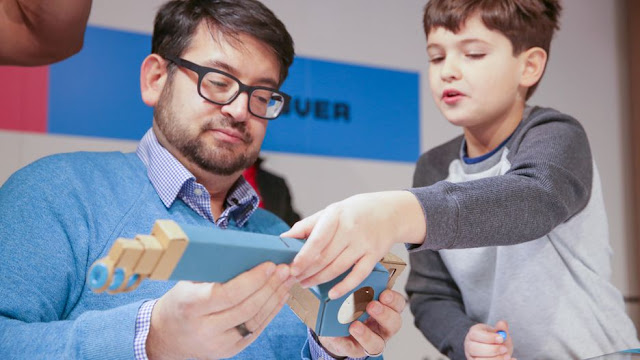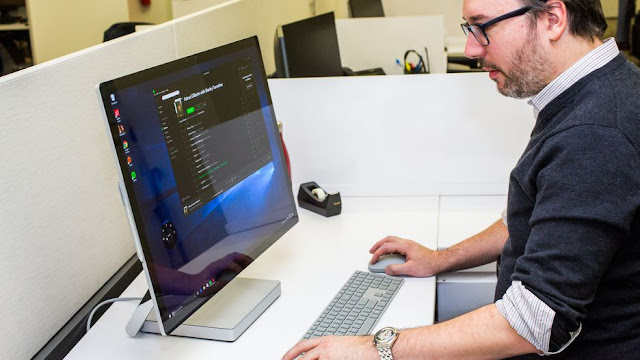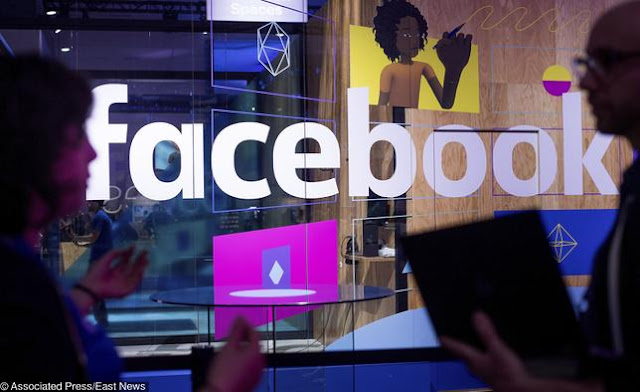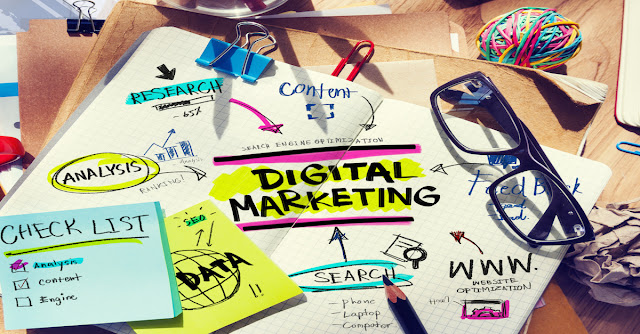The social network celebrates its annual developer meeting only weeks after the Cambridge Analytica scandal. Can Mark Zuckerberg calm people's nerves?
Mark Zuckerberg has offered many apologies and many explanations in the weeks since he was forced to tell the world that the data of 87 million Facebook users were co-opted and used without his knowledge - or that of his company.
This week, he will be able to apologize again and explain things, as the executive will face some 5,000 developers who meet every year near the Facebook headquarters in Silicon Valley for his conference, called F8.
The largest social network in the world has yet to show that it knows how to solve the disaster it created, no matter how much Zuckerberg and Facebook want to overstate their latest efforts to "make the world more open and connected" (as the slogan used to say of the company) and it does not matter how much those F8 attendees want to capitalize on the 2.2 billion people who use the platform.
"People want to feel safe when they're on the Web," said Brian Blau , an analyst at Gartner. People have always known in a certain way that they are exchanging some privacy in exchange for free applications, services and photo storage. But, he said, there is an expectation that comes with that.
"They just want to know that they are not taking advantage of them," Blau said. "I do not think Facebook has really faced that fact, and now it has to."
As in the past, Facebook's F8 conference will last two days this year, and will take place in San Jose, California. It is also expected to show many new products.
The company has been talking a lot lately about artificial intelligence, for example. Your Facebook Messenger application has also been the focus of key announcements during this time in recent years, such as when it was opened to other applications. And rumors say that the latest virtual reality glasses of Facebook, the Oculus Go , probably will also be displayed at the event.
Facebook reaches F8 after dispelling concerns that users and advertising partners were giving up the social network. Last week, the company reported earnings that exceeded Wall Street expectations, with nearly $ 12 billion in ad sales during the first three months of the year. Facebook also said that despite the #DeleteFacebook campaign , the number of people using the service at least once a month had actually increased.
Zuckerberg, 33, made it clear during a conference call with analysts that after more than a month of scandal, he is ready to move on.
"We have a responsibility to make our community feel safe ... And at the same time, we have a responsibility to overcome this and move forward."
You are the product
Many things have come to light after the Cambridge Analytica scandal. The most recent was a blog post last week in which the company faced the old adage of the Internet "If you do not pay, you are the product." That's the idea that, while Facebook allows you to use its service for free, it makes your data available to vendors and businesses to attract them with the promise of more targeted targeted advertising, which is the way Facebook generates Most of your money.
That notion has plagued Facebook repeatedly as more and more people (and even members of the US Congress) raise concerns about how advertising actually works in their service and how much data the company makes available to developers. and other partners.
Facebook tried to address this issue directly in a blog post of "Difficult Questions" , in which Rob Goldman, the vice president of advertising for the social network, raised the question: "If I do not pay for Facebook, am I the product?"
"Did not answer. "Our product is social networks, the ability to connect with people who matter to them, wherever they are in the world."
Goldman also reminded users that there is no way to opt out of sharing their data. "You can not exclude yourself from ads because ads are what makes Facebook free," Goldman wrote.
It is not clear if Facebook can change the public's perceptions of its advertising practices and data management. However, one thing is for sure: if you do not address these issues in the midst of your announcements about new technology, features for your service and a surprising futuristic investigation, you would have missed an opportunity.
"Life is about learning from mistakes," Zuckerberg said earlier this month. This year's conference will be your last chance to share what you have learned.
Mark Zuckerberg has offered many apologies and many explanations in the weeks since he was forced to tell the world that the data of 87 million Facebook users were co-opted and used without his knowledge - or that of his company.
This week, he will be able to apologize again and explain things, as the executive will face some 5,000 developers who meet every year near the Facebook headquarters in Silicon Valley for his conference, called F8.
The largest social network in the world has yet to show that it knows how to solve the disaster it created, no matter how much Zuckerberg and Facebook want to overstate their latest efforts to "make the world more open and connected" (as the slogan used to say of the company) and it does not matter how much those F8 attendees want to capitalize on the 2.2 billion people who use the platform.
"People want to feel safe when they're on the Web," said Brian Blau , an analyst at Gartner. People have always known in a certain way that they are exchanging some privacy in exchange for free applications, services and photo storage. But, he said, there is an expectation that comes with that.
"They just want to know that they are not taking advantage of them," Blau said. "I do not think Facebook has really faced that fact, and now it has to."
As in the past, Facebook's F8 conference will last two days this year, and will take place in San Jose, California. It is also expected to show many new products.
The company has been talking a lot lately about artificial intelligence, for example. Your Facebook Messenger application has also been the focus of key announcements during this time in recent years, such as when it was opened to other applications. And rumors say that the latest virtual reality glasses of Facebook, the Oculus Go , probably will also be displayed at the event.
Facebook reaches F8 after dispelling concerns that users and advertising partners were giving up the social network. Last week, the company reported earnings that exceeded Wall Street expectations, with nearly $ 12 billion in ad sales during the first three months of the year. Facebook also said that despite the #DeleteFacebook campaign , the number of people using the service at least once a month had actually increased.
Zuckerberg, 33, made it clear during a conference call with analysts that after more than a month of scandal, he is ready to move on.
"We have a responsibility to make our community feel safe ... And at the same time, we have a responsibility to overcome this and move forward."
You are the product
Many things have come to light after the Cambridge Analytica scandal. The most recent was a blog post last week in which the company faced the old adage of the Internet "If you do not pay, you are the product." That's the idea that, while Facebook allows you to use its service for free, it makes your data available to vendors and businesses to attract them with the promise of more targeted targeted advertising, which is the way Facebook generates Most of your money.
That notion has plagued Facebook repeatedly as more and more people (and even members of the US Congress) raise concerns about how advertising actually works in their service and how much data the company makes available to developers. and other partners.
Facebook tried to address this issue directly in a blog post of "Difficult Questions" , in which Rob Goldman, the vice president of advertising for the social network, raised the question: "If I do not pay for Facebook, am I the product?"
"Did not answer. "Our product is social networks, the ability to connect with people who matter to them, wherever they are in the world."
Goldman also reminded users that there is no way to opt out of sharing their data. "You can not exclude yourself from ads because ads are what makes Facebook free," Goldman wrote.
It is not clear if Facebook can change the public's perceptions of its advertising practices and data management. However, one thing is for sure: if you do not address these issues in the midst of your announcements about new technology, features for your service and a surprising futuristic investigation, you would have missed an opportunity.
"Life is about learning from mistakes," Zuckerberg said earlier this month. This year's conference will be your last chance to share what you have learned.























































































